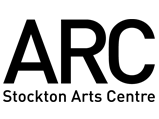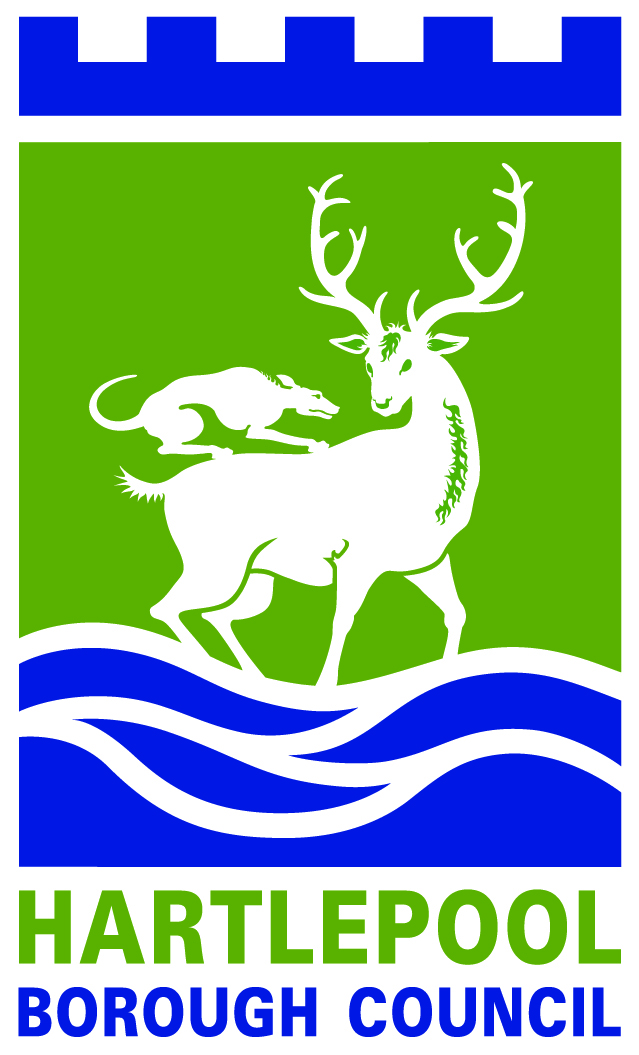Students of the Teesside University creative writing faculty starred in a special event hosted by Bob Beagrie, supporting the launch of Judi Sutherland’s collection ‘Following Teisa’. These are their poems:
Teesside streets
if these Teesside streets could speak
they’d say how beautiful we are, how we meet on the corners, scream our silence into the town, knocked down, pushed around but looking up to skies that cradle us all
they’d say we deserve more, that the music we make is rooted in notes only we can play, wish we could bottle that – taste this they’d say, pure Teesside, street wise, eyes wide, scoring out a future from the side-lines
they’d say we twist and turn with the tees, a river of steel flowing through us, branching out into streams that always lead to home
these streets would say we have community, that we are a union of poetry, we have a way with words that turn others green, kicking the blues into next week, we sneak a peek at the sun setting just over the border
they’d say we walk to our own beat; we breathe in iron; you can hear our echoes down the alleys, if these Teesside streets could speak they’d say: slice through the smog of beggared loss and see how beautiful we are
Julie Easley
To Charm the River
Toss a pebble so it skims
the ripples once, twice,
three times
before it drops
to sink to stir her
from her bed,
scatter grass and daisies
across brown eddies
where sunlight glistens
and when she turns
on a tidal shift
ask her politely
to come to tea.
Go home and wait
patiently for when
and if she arrives
you will recognise her
as your Great Aunt Peg
from your Nana’s photos
wearing a swan feather bonnet
a weed green coat
a seal pelt shawl pinned
by a broach of jet, her breath
will be full of foxgloves.
She will flow
through the house
taking a path of least resistance,
under the surface of her skin
semi translucent,
shifting like rain in puddles
are pot dogs on a window sill
old nuts, washers, bolts, chains
from broken hoists,
from derailed trolleys.
Threatening to spill
beyond her edges she will settle
in a chair, sip her tea, nibble cake,
reminisce about her headlong rush
from Crossfell toward the Gares
tumbling between eroded rocks
the leap of High Force,
the turns and twists
through tangled woods,
the brush of boats,
the scrape of ships –
of fish and tadpoles,
dragonflies, a heron’s beak,
a cloud of midges, the dip
and drip of a water wheel
and how once upon a while
folk would worship her
for the life and death
she brought before we thought
we’d tamed her seasonal swell.
Her voice will splash
and babble on, lap-lapping
against your consciousness
gently lulling you into sleep
and when you wake,
she’s gone
leaving soppy footprints
across the kitchen floor.
Bob Beagrie
Crossing the Tees
As if she’s locked expectation
in a dead man’s chest and buried it
deep in her sludge and her silt,
the river today is ambivalent,
can’t decide what colour she wants to be,
refusing flat out to follow the sky’s direction
and trying her damnedest not to think about
wherever she’s heading, what’s around
the next meander and how far it is
to the open sea. This is the way
of keeping the tears in check,
of getting on with the getting on
not to place blue hopefulness
on anyone’s display shelf, as if
simultaneously resisting
acknowledging the presence of things
with a given name while being unable
to ignore the tell-tale signs of change,
it’s this, which is a tentative kind of love,
that creates a heavy absence, the dull fullness
of nothing, that is all about waiting, of cushioning
patience, although there are crests and furrows
like goose-bumps across her skin. Under
the suspended weight of bridges she forgets
herself momentarily in reflections of cooling
towers, cranes and cargo ships, the splash
of a pale wing wheeling over legers of salt.
She is dragging the past into the present
like the wide train of a ceremonial dress
then binding it around her eyes as a blindfold
to step inevitably into the future that lies
beyond the reach of concrete breakwaters.
Bob Beagrie
This Could be Heaven
A wooden sign will direct you to the waterfall : Take Care
don’t go there
you can sit on the splintered tree,
lie low for a while
and drink your builder’s tea
then when someone passes, curl your lip, spit in the grasses,
outclass the masses, resist the urge to shout Good Morning
and instead practise looking odd, take off your socks
enjoy the feeling of being weird for a day
regress a year or two, and stick out your tongue to catch flies
wonder and imagine where the swimming creatures lived
the ooliths in sugar limestone when this land
was once at sea
then lie back with Pignut for your pillow
and wallow in Self-Heal.
This could be heaven.
Anne Dauber
An Ode to the Tees
River Tees, I greet you
From the land between the tributaries
of Benue and Niger Rivers
I have come to greet you
May it be well with this land
I have come to drink the wealth of Knowledge
From your citadel
May it be well with me and all with me
At times I hear the cantankerous noises of those who would divide us
Those who take such delight in impaling us
Look how gaunt we look while they giddily gobble our wealth
Those who are blinded by the divisions of their own ignorance
May your waters wash me and them too
Our hairs matted through those days of loneliness
Chattels barely numbered
While they made merry with beer and strong spirits
Imperious ministers who make laws to disobey
We perish for their indiscretion
Their nemesis
They made hermits of us
And threatened us with 6 feet apart or 6 feet under
And preached at us to wash our hands and mask our noses
while they were drowning in conjugal bliss at downing street
Oh, What virility!
River Tees, please wash their souls if that can be found
Ethereal Tees, I hear the sweet sound of your waters rushing down the terrains
Of Rivers Greta, Lune, Balder, Leven and Skerne
Furnaces of metals built the ships that went ashore for the wealth of nations
Did you know the ships docked in your harbours brought ancestors
Chained by rusty iron metals once forged in your furnaces
I smell their sweat
How gullible we were
Today, I have come to greet you River Tees
May it be well with this beautiful lustrous land
May your waters bring wealth and quench the thirst of those that come to you
May we all be cleansed of you
May it be well with us and all with us
Patience Ezinwoke
The Bridge that Tells Tales
The bridge rises proudly from behind St Hilda’s
Bright blue frame once molten moving gold
Surrounded by sounds of unstoppable industry
And children’s laughter on the smokebelch breeze
Bright blue frame once molten moving gold
Telling its tales through the shouts of dockers
Children’s laughter on the smokebelch breeze
And the grinding shriek of rope through pulley
Telling its tales through the shouts of dockers
The bangs and clanks of winch and chain
The grinding shriek of rope through pulley
And our own voices on the smokebelch breeze
Lisa Lovebucket
The Old Woman
The old woman stands still
Around her all is movement
The gondola glides
Mighty steamers billow smoke
The water catches it all
The old woman reflects
Her image on the water
Fades in the twilight
Cargo ships carry cargo
The day ends all by itself
Lisa Lovebucket
Newport Bridge
Clenched fists are raised
against a flailing sunset;
bloodied knuckles pierce skywards;
fingers squeezed together in supplication
cling cadaver-like with all their might
to the fading grey of evening –
If I let go, l will slip
to deep, peaceful oblivion
drowned in sorrow
as dark and fearful
as the turns and twists
of the waters of the Tees
Bedum Bedum Bedum Bedum
Rubber tyres cartwheel
across your surface,
beat against the metal hinges
which once opened to allow
your Titan hands to unfurl,
palms raised in welcome to ships,
sailing silently beneath you.
A coiled thrum of numbness
unwinds within me, entrains
to the thump of your tarmaced heart,
follows your rhythm
Bedum Bedum Bedum Bedum
The beat embraces the life within me
which will not die. This mighty river
has woven a magic thread;
stitched together the fragments
of myself which splintered,
wrapped me in its arms, wept tears
for me when all of mine had been cried…
Bedum Bedum Bedum Bedum
Barbara Ann Whiting
Against the river
I got vertigo in the swaying caravan
hitched by the River Lune,
fibreglass, a feeble membrane
against the storm –
named after a maiden aunt –
shouting at the moon.
I try to read but the words channel, drain
down the page, defeated, we set for Bowes
seeking the silvered swan yet the river stalks us,
a fluttering ribbon on the wind’s breath.
I stop, steady myself, like the gloved hand of moss
presses flat the jumble of drystone wall.
At night, branches, safe from the water’s course
point fingers into our bedroom berth,
prod the ceramic fox, softly
pawing along the teak cupboard.
Moon tendrils make the glass crucifix glow.
We hunker, under a duvet, sodden by cold.
Still – I listen to the river slip round paths unseen,
mixing with rain, sky and land water flow together,
breaking stones to reveal fossil bones
rolling spine of grouse with skull of mouse
a piece of antler, cracked away when the skies
were wide and empty.
The river tastes it all, a gurgling mouth
of old brown blood, seeped from the hillside,
it will clasp the curl of my hair,
like the clumps of sheeps’ wool, tufting from trees
clackety pebbles, calmly counting centuries
a pale promise of survival.
Emma Dudman
From mud we come
I’m at work when the boats
draw their line at Teesmouth,
a flotilla, sat proud in the water,
just as all these months returning,
too high on the waves –
signalled to the shoreline, no catch today.
Remember when I cried over far-off dolphins, flailing in nets?
Now from the business breakfast
of white shirts, grey tables and crushed pots of UHT –
progress trumps death. Office windows look away from
the glint of river to sea, miss rats retreating along the riverbank
and strong muscled fish, flexing, as far inland as they can.
My white-haired father is amongst the flags,
clamouring ‘Stop the dredge’, ‘Save our sea’,
retirees amass at the wind-battered gun embankment,
built on two miles of compacted rubbish,
waste from furnaces that bled molten metal.
A glinting watch, he waves support from shore.
His moustache was black when the scientist’s tugboats
were all rolled sleeves, scooping samples from the side,
salted pipettes vindicated when the salmon returned.
So they left, stubbing out cigarettes in the social clubs
sharing vignettes of the garages that poured sump oil – ‘straight in!’,
‘The water is clear now but the mud must never be disturbed’.
Yet still they dig and dump,
as if the sullenness of mud anchors it forever,
as if blood doesn’t slip from the heart,
as if old nail varnish, paint and rusted cannisters dilute to naught
as if we’re all not drinking each other’s sweat and piss and hair –
from the mud we came and by the mud we shall return.
Emma Dudman
Graphite
If I scratched around bollards
poked between the old sleepers
I would still find traces of it
The dockers cursed when SS “Conway” arrived
from Mumbai pressed her rusty beam against the dock
on that sullen November day
with a thousand tonnes of it.
It got everywhere
down your neck, in your hair,
making paste in your mouth
working this cargo was very sulky
not a good time to tell them
that “ypaQo” is Greek for graphite-
“to draw or write.”
yet Anish Kapoor with his
graphite nib found his way
from India to this lonely spit
to sketch and plant his outrageous “Temenos”
whose glorious gobs net plankton of memories
of nurled bale-hooked voices
ricocheting
through back to back lattice
its hawsers
strain again to lock a freighter’s nudge.
David Smith
Iron born
My mouth is an iron ghost town
once in ore of itself
swallowed by the changing tide.
My heart is a place forgotten, for my hand
in Britain’s industrial highs
once hailed an infant Hercules
now left to wallow in my demise.
My blood is the river
ebbing and flowing
in and out of this iron heart
my children grew up strong
from growing up harsh.
We are a steel giant.
We adapt,
We are not doomed.
We rise from this steel graveyard.
We shake off this chemical plume
With music and song
We rewrite this land.
Painting a picture of a future
Where creativity fuels the lives of our clans.
Although a forgotten town I am a city at heart.
A fire if snuffed out I ’ll always restart.
I am Iron born.
Jade April
Let’s Meet By The River
Let’s meet by the river,
Jhelum and the Tees
East or West of the sun
And relive our memories.
Let’s meet by the river
On the East or the West bank
Beside the blue dragon
Astride from bank to bank
Or in the land of the bright sun,
Under the shade of Tali,
To reenforce our memories.
We were not strangers
In the Bela, encircled by water
Binding us to the Jhelum
Not as our tyrant but our patron
Who annually replenishes rich soil,
Keeping our climate temperate,
Whilst others endured the force
Of an Indian summer.
Abundance of water,
Guardian of property, livestock
Coming and going day and night
Always in flow during summer and autumn.
My first memory of the river –
Born in July, lying beside mother
On charpoy on rooftop
Under the blanket of stars
It’s lullaby guiding me to sleep.
The people of Bela
Followed the simple lives of their forefathers
Living was made with the labour of hands.
When of the age, marriage was arranged
Had children, who had children.
When we were gone
We were remembered and loved
When our children and their children were no more
Our names lost, the People of Bela
Never saw any reason to ask themselves
Would their deeds echo across the country
Across time …
Would their descents or strangers hear
Their names long after they were gone
And wonder who they were?
At the start of the 1960’s
Education managed to establish a foothold
Boys started schooling at eight
Left at thirteen or fourteen …
“What use is education?”
Was the mantra of the elders
“Ditta, Nazar and Mooda served in Army of the Sahib
Even fought in Burma without setting foot in a school
Boota, majjah da baparyee
Famed in the districts of Jhelum, Khari and Mirpur
Went to school for only one day.
We’ve managed, our fathers, grandfathers
and their fathers managed without education
Why waste your brain?”
Bela, the centre of our world, cradled
Makdoor Pur, Punjal Pur, Dokh and my village Lunger Pur
A small shop, a school
No radio, television, no electricity,
Free from all modern trappings.
Bela functioned on the barter system
With no wild animals or strangers
Children roamed free from burden responsibility
Cloudless sky, crystal clear waters,
Jhelum our swimming pool.
What is your first memory of the River Tees?
The river of whose banks Middlesbrough was grown on,
It’s famed iron guardian
Were successfully camouflaged
By the combination of weather and relentless industry,
On my first half a dozen visits from Bradford,
Like thousands of Irish, Scots, Welsh
And jobless peasants from all corners of Britain,
Lured by the steel & chemical boom,
A place that promised a fortune
In the summer of 1975, I too was enticed.
One day I shall return home a conquering hero
Laiden with wealth, my journey’s end
is not Bradford but thousands miles to the East,
Lunger Pur Baley, Jhelum, Punjab, Pakistan.
Let’s meet by the river,
Jhelum and the Tees
East or West of the sun
And relive our memories.
Born on an island
In the middle of River Jhelum
Home on the banks of
River Tees
Man of dual cultures
Two buckets were comfortably carried
I hope I carried them well.
Bela: Island
charpoy: stringed bed
Khadim Hussain
Then and Now: The Rivers
Then, the Severn, green hills
towering over the reach of her.
Her arms curved round youthful imagination
nestled in the bosom of her pebbled waters.
The wind-shimmed jars of minnows,
skip skip of skimmed stones
plunging deep into clear waters
leaving Hafren’s crown,
translucent
as cool as the eye of my brother
sat watching the shade for fish.
Now, the Tees, industrial heart
spreading with the strength of him.
His serpentine back weaves silver shimmer
through the sinuous-body of nature.
The fortresses of grass and mud,
skip skip of skimmed stones
Plunging deep into black waters
leaving oil-black
undulations
as sweeping as the eye of my child
sat watching the shade for fish.
Caroline Walling
The Tees.
This loutish urban fox, slick-backed serpent,
sometime swollen corpse,
oblivious to your cares
does not stop to wipe your tears
even as you soothe your soul on its boundaries.
It wefts and wends through marked spoors
slices towns, fields, forest, factories
marks its territories with pungency
industrial tinctures to
musk perfumes stippled as whitebeam.
This sleek full-bodied creature pushes
on, hungry, towards bigger things.
It cushions, covers, nestles, sweeps,
folds, slops and slicks its way.
Scatters fertile silver tracks in summer
gristles its way through winter,
(coating all things brown)
whispers or roars as its mood changes.
It gives life and takes it,
sacrifices its banks to slavery
finds a path round the barriers
and cleans the bed it lays in.
This loutish urban fox, slick-backed serpent,
tips the trees and scavenges the hillsides
tumbles and tosses a thousand voices
creates the awe and liminal spaces,
oblivious to your cares
does not stop to wipe your tears,
even as you soothe your soul on its boundaries.
Caroline Walling
River Counsel
At the waterside the people cry
How now shall we live our lives?
Chasing through loops and straights
the Tees replies:
I burst my banks when I am full
flood the lands with my rage
They cannot take and never give
You must learn the same.
I offer respite at warm edges
never judging never question
wash the feet of restless sinners
You must do the same.
At the waterside the people cry
How now shall we live our lives?
Chasing through loops and straights
the Tees replies
I had a lifeless age, all drudgery
and burdening of industry
things change, and I’ve regrown,
You must learn the same
I find the places they cannot go
nurture a journey of my own
sing and dance, revolt and rage.
You must do the same.
Caroline Walling
From ‘A Teesside Girl’
Tees Transporter Bridge
A black-dressed woman goes missing
from ending her relationship, with paper and pen.
She falls backwards, from the top-centre
of the blue metal ‘M’, standing on four legs.
With bridge’s eye, she looks at the Boro.
The landmarks remind her, of a season
when her college and his uni met.
Closes eyes, to enjoy the smooth pull of the gravity.
Her shadow on the top of the morning Tees
escapes the glare.
The birds watching from the wrecked ship
can’t understand her trespassing their zone.
Tees Mouth
A deceased woman goes missing
from the Tees and Teesside
to reach the North Sea,
then, to escape the range of the old lighthouse.
Her last five-minute float between the two buoys
displaces water, to hit the side-bank rock cubes
with hissing sounds, forming spirals and foams.
A cormorant, circles from the above
signalling the man rowing continuously
for the last few hours in the Tees.
but, he is still a hundred rows away!
Sriramgokul Chinnasamy









